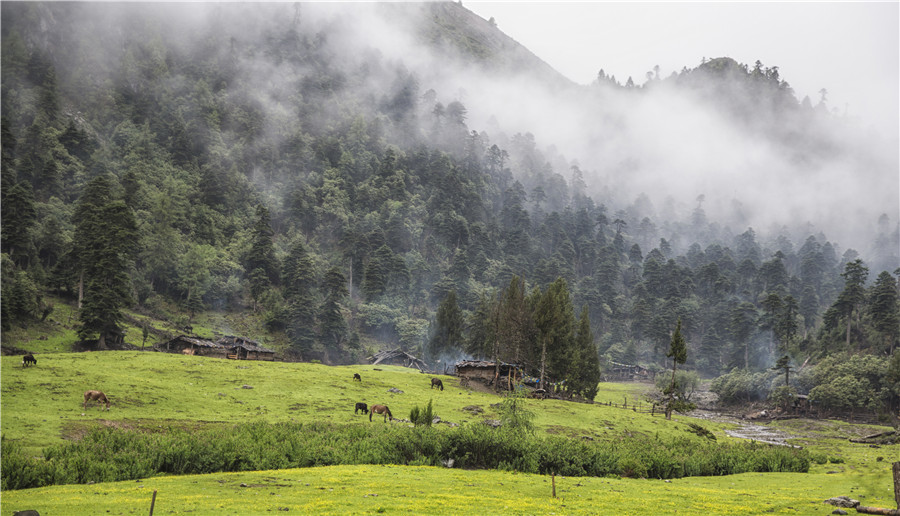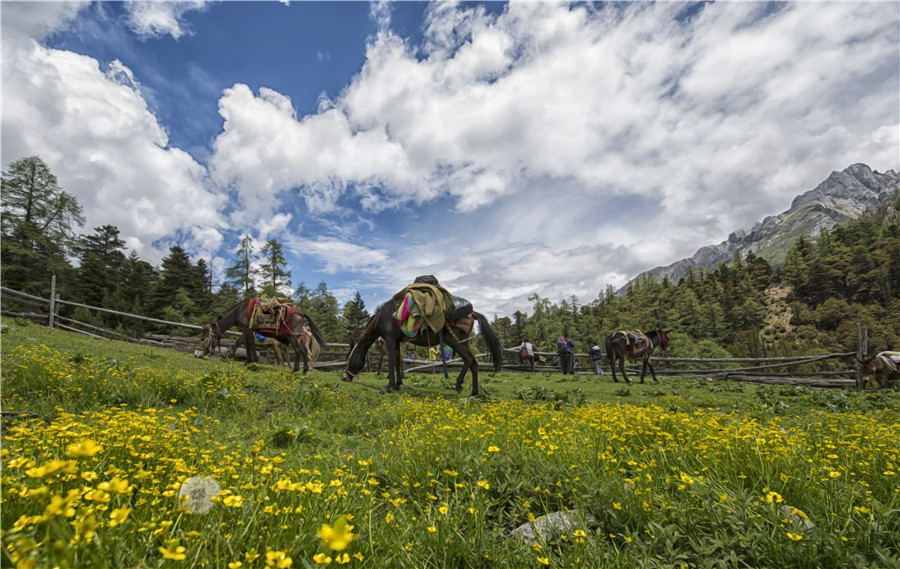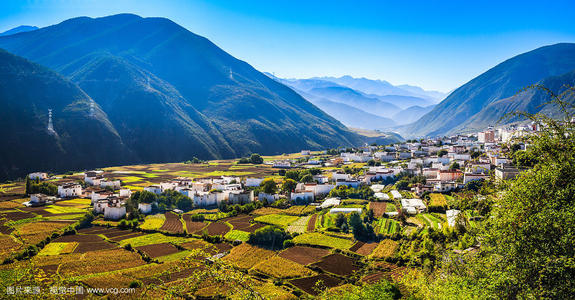

首页 > Scenery > Tea Horse Road Ferry Observation Deck
The ancient Yunnan-Tibet tea-horse road originated from the tea-horse interchange in the Tang and Song Dynasties. In order to break down fat and take in vitamins, the Tibetan people have created a plateau life habit of drinking butter tea, but tea is not produced in Tibetan areas. In the interior, civil servants and military conquests require a large number of mules and horses, while Tibetan areas and the borders of Sichuan and Yunnan produce good horses. As a result, the complementary tea and horse trade, namely the tea-horse mutual market, came into being. In this way, the mules, horses, furs, medicinal materials produced in Tibet and the borders of Sichuan and Yunnan, and the tea, cloth, salt and daily utensils produced in Sichuan, Yunnan and inland, travel north and south between the high mountains and deep valleys of the Hengduan Mountains. Flowing ceaselessly, and with the development of society and economy, it has become increasingly prosperous, forming an ancient tea-horse road that continues to this day.
Opposite the Jinsha River is Benzilan Town in Deqin County, Diqing Prefecture, Yunnan Province. It is an important throat town on the Yunnan-Tibet Ancient Tea-Horse Road and is known as a golden sand dam. It used to be a very prosperous commercial port, known for the most capable horsemen, the horse-driving people. Each of them can drive eight or even fifteen mules, and the caravan likes to hire them. In this way, these horse feet ran back and forth with the horse carts of various ethnic groups, from Simao and Pu'er, where tea is rich in Yunnan, to the Dali Bai Autonomous Prefecture and Lijiang region, and then into Tibet via Shangri-La and directly to Lhasa. The horse caravan greatly promoted the cultural and material exchanges of various ethnic groups. Time flies, the ancient Yunnan-Tibet Tea-Horse Road, which once played a major role in the Yunnan-Tibet trade, has been replaced by convenient Yunnan-Tibet Highway and modern transportation, but the story of the ancient Yunnan-Tibet Tea-Horse Road, which carries the footprints of history, is still in all ethnic groups. It is sung in the legends and singing, becoming the longest continuation of the ancient Yunnan-Tibet tea-horse road.


